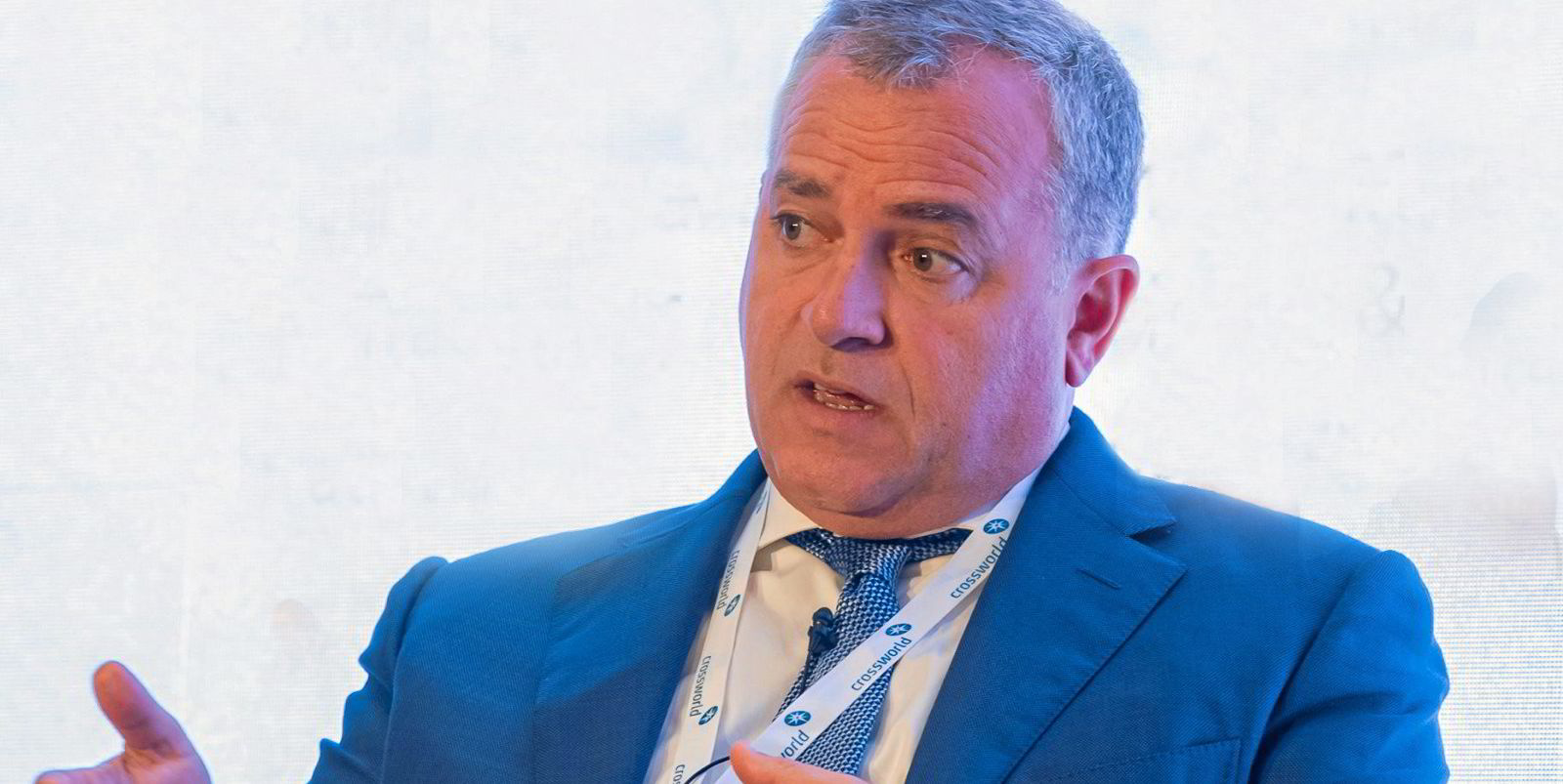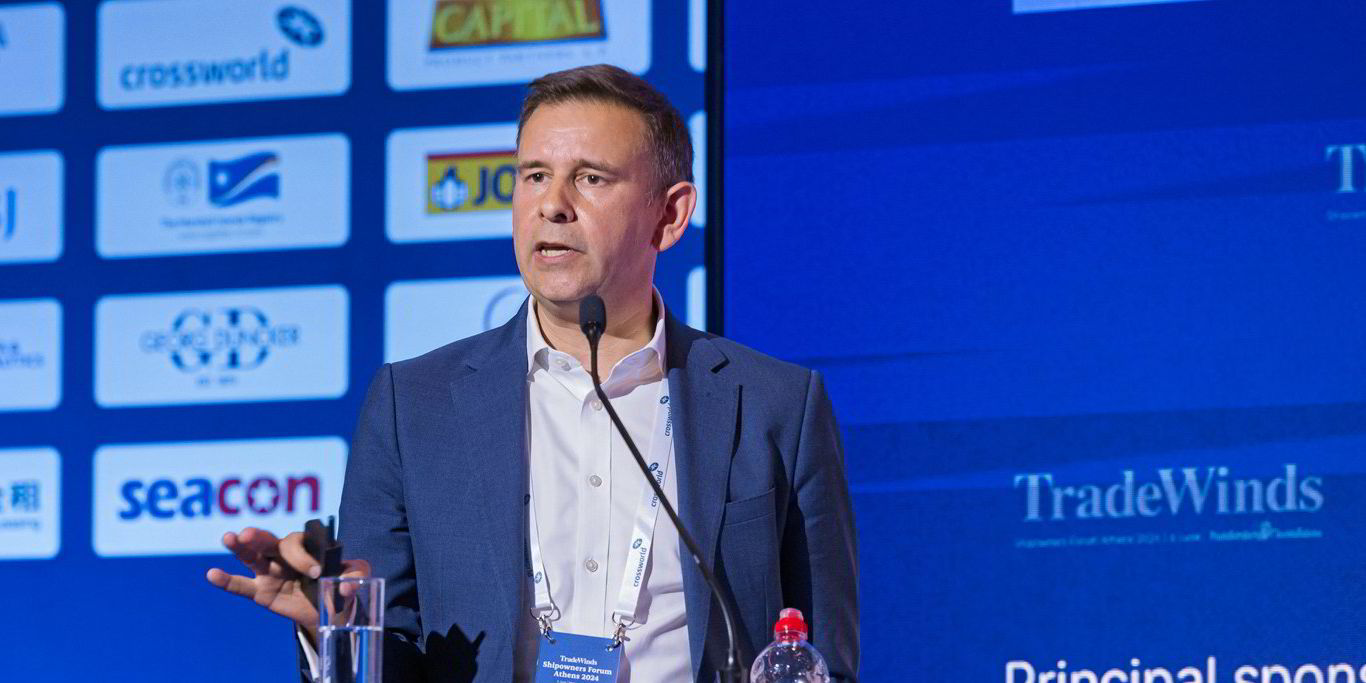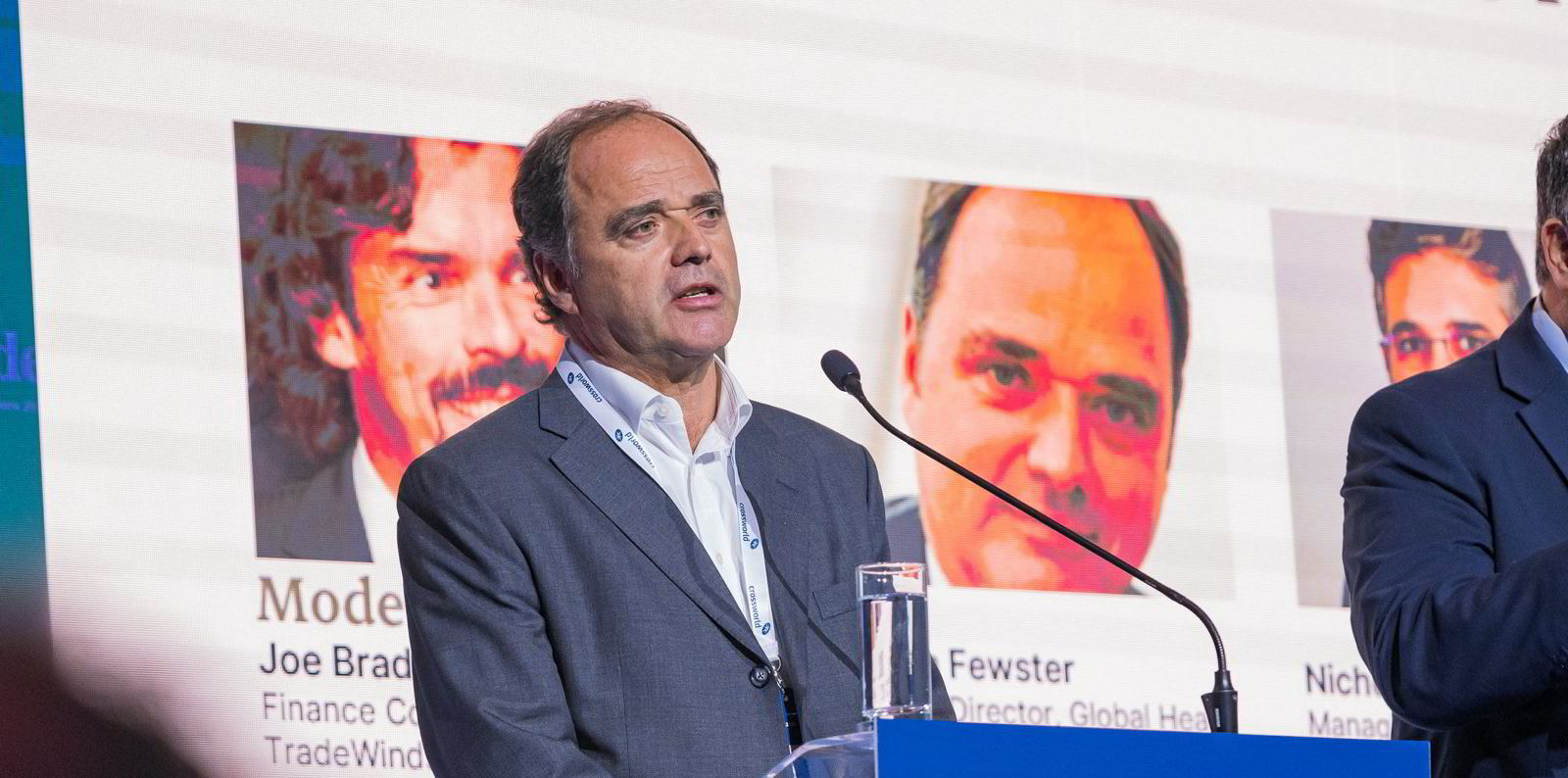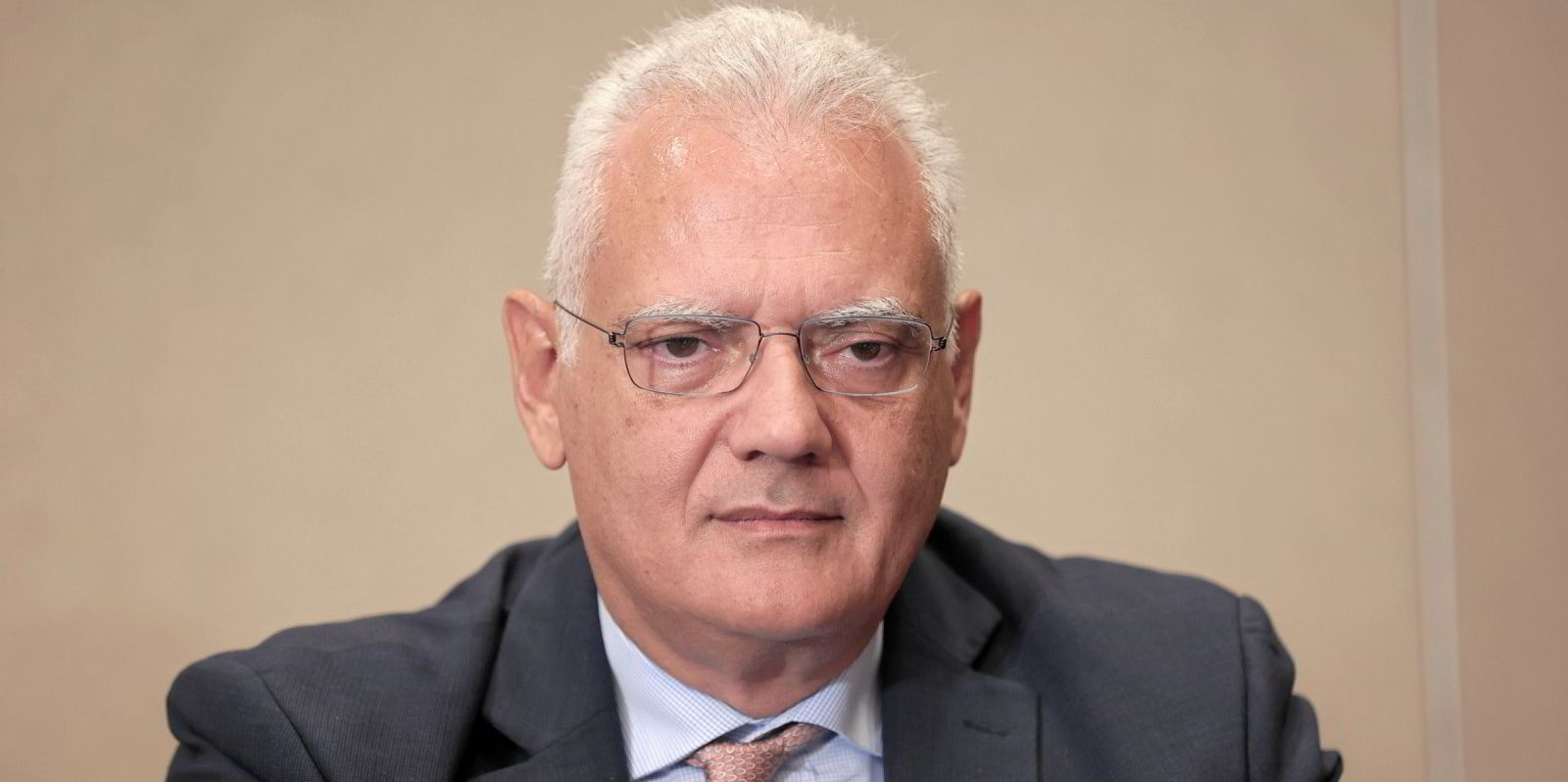Shipping must seize the moment and reinvest much of the windfall profits it is currently piling up into cleaner vessels, major Greek Cypriot shipowner Polys Hajioannou said during Posidonia on Wednesday.
His call comes just one day after a Clarksons analyst told the TradeWinds Shipowners Forum that the industry has invested less than half of the profits earned so far in the boom into newbuildings, as opposed to almost all of them back in 2008.
Hajioannou who is the principal of US-listed Safe Bulkers, did not go as far as suggesting that his peers should spend all of their windfall cash, but said they should definitely spend “a good part of it”.
“Right now we’re blessed with this extra routing that … creates maybe 30% extra distances through the Cape of Good Hope instead of the Red Sea,” he told a conference organised by Helmepa, Greece’s maritime environment protection organisation.
“The 30% longer routes … create 60% higher revenues for shipowners — we have to take these 60%, a good part of it, and throw it back into new technologies that try to improve our fleets,” he added.
If not in newbuildings, then owners should invest in “whatever they can” to make their ships more efficient.
“Our charterers will pay a good part of it,” he added.
“We’re in a good era … let’s make the maximum of it, let’s act now,” he said.
‘Unapologetic’ as ever
At the same time, Hajioannou defiantly said the industry has no reason to feel guilty about its environmental performance, given the improvements it made over the past decades.
“I disagree … [that] we as shipowners have to be apologetic for the pollution we produce,” he told the audience.
To justify his view, he argued that the latest kamsarmax bulkers he has ordered in Japan are burning about 14 tonnes of fuel per day, compared to the 28 tonnes per day burnt by the first panamax bulkers he had ordered in South Korea about 30 years ago.
“We’re doing our best,” he said.
“We can’t change the ships, we can’t change the engines. As taxi drivers do, we have to keep our taxi clean, our ships clean, we have to maintain them well and keep them safe and of course be polite to our customers, who are the charterers and pay the money,” he said.
On 4 June, Safe Bulkers announced placing the latest in a series of 18 kamsarmax and post-panamax bulkers it has ordered in Japan and China since late 2020.
All of them are latest-technology conventionally fuelled, EEDI-Phase 3-compliant vessels, with the exception of two ships that will be able to run on methanol as well.
Lower consumption in conventional fuelled vessels is what finally convinced Petros Pappas, chief executive of US-listed behemoth Star Bulk Carriers, to give up his reluctance to place newbuildings and order five such vessels.
“We think they will [commercially] survive,” Pappas told the same panel.
Being a public company has given additional impetus to companies such as Safe Bulkers and Star Bulk to engage in fleet renewal.
“Being a public company … pushes us … to act a little bit faster than the majority of other owners,” Hajioannou said.
Both Star Bulk and Safe Bulkers are not sending ships through the Red Sea, to avoid the risk of Houthi attacks.
“We can not risk our crew passing through these places… it’s not our job to monitor drones or rockets,” Hajioannou said.






